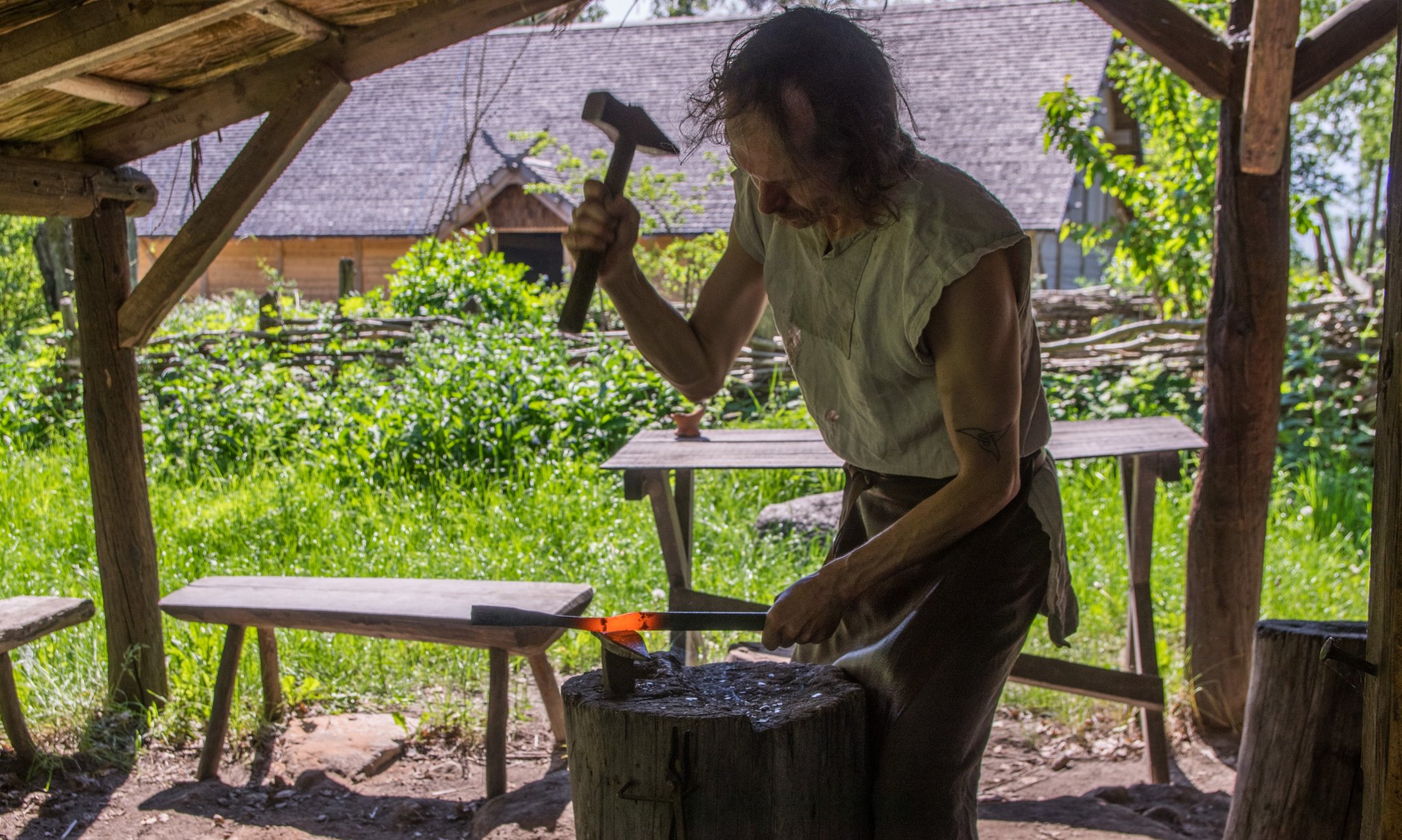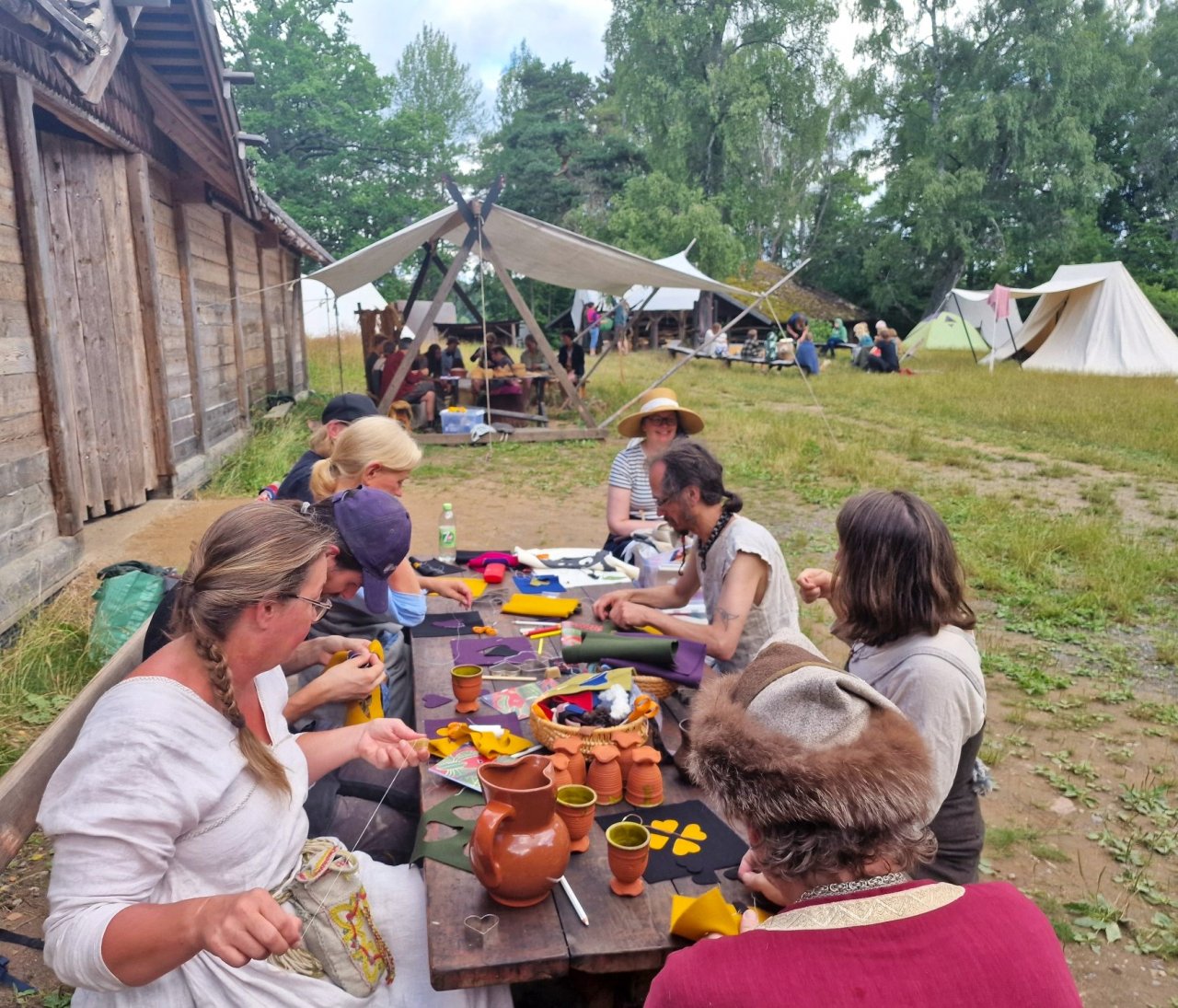
The Historical Crafts Camp
Welcome to the Crafts camp 2024

Storholmen arkeologiska friluftsmuseum
Information about our courses 2024 is published in Swedish, since they will be in Swedish. Contact us if you want to have more information in english! Andreas: 070-7424009
July 12:Arrival from 16:00. Information about arrangements, tour of the museum area. A grilled meal is served with flatbread that you bake yourself over the embers. Workshop / try out needle binding and blacksmithing for the keen, crafts and campfire fun. The wood sauna, which can accommodate about 16 people at a time, is kept warm until the evening.
July 13: Breakfast at 8.00. We start the courses at 9.00 – 16.00. You have indicated which course you want to attend when registering. 12.30 Sandwich lunch with coffee/tea. Lecture/workshop on edible herbs before dinner which is served around 18.00. The sauna is heated.
July 14: Breakfast at 8.00. We start the courses at 9.00 – 16.00. You have indicated which course you will attend when registering (see the courses below). Dinner is served at 17.00, then departure.
Friluftsmuseet has a long hall, herb gardens and several reconstructed Viking houses. If the weather is bad, we have a roof over our heads. It is beautifully situated by the Norra Malma nature reserve and burial grounds by Lake Erken. After a day of crafts and dinner, it’s nice to have a sauna and a swim.
Wood-fired sauna that can accommodate 16 people by the lake. WC and RWC and hot water are available.
Accommodation: You live in your own tent, but a few shared sleeping places in fabric tents can be arranged on request. Contact us at: hantverkslager@storholmen.org.
